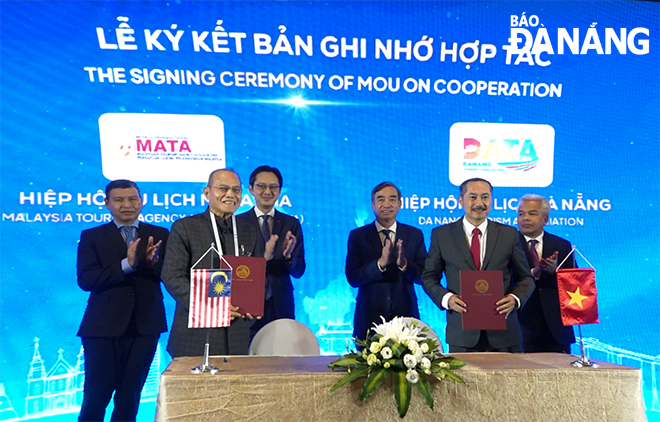Local students create automatic 'trun que' raising system
A group of talented students from the Da Nang-based University of Technology and Science has conducted their scientific research into a project for raising ‘trun que’ (Perionyx excavatus), commonly known as composting worms or blues, to deal with agricultural wastes, and creating an automatic ‘trun que’ raising system.
 |
| The automatic ‘trun que’ raising system developed by the talented students |
This project aims to minimise the affect of agricultural wastes on the environment, and make the full use of this material to help farmers to earn extra money.
The commercially produced earthworm is marketed for its ability to create fine worm castings quickly, and has recently become more popular in many countries for composting purposes.
In particular, trun que’s dung makes excellent fertilizer while its flesh is typically used as nutrient-rich animal feed.
This method of raising ‘trun que’ for the sake of the environment has been applied successfully at many large farms in Da Nang’s Hoa Vang District, Ho Chi Minh City’s Cu Chi District and Binh Dinh Province’s Phu Cat District and Binh Phuoc Province but this conventional model is much labour-consuming.
The use of the automatic ‘trun que’ raising system developed by the talented students has proved more efficient than other conventional methods.
The commercially produced earthworm can be used as nutrient-rich animal feed for the poultry, the livestock, and fish.
Meanwhile, after a period of 8 months, a more than 50 tonnes of dung, priced at 3,000 VND per kg, is collected as an excellent fertilizer source stimulating the development of the root system of plants and for plants, and produce more fruitful crops of vegetables in comparison with the use of microbial organic fertilizer currently sold in the market.
The automatic ‘trun que’ raising system features an integrated database about local temperatures and humidity levels.
Moreover, the convenient system helps farmers effectively monitor ‘trun que’, anywhere and at anytime, over the Internet through the use of IT applications on laptops, smart phones, tablets and computers. It is especially useful if they are away from their homes.
The project won the first prizes at a competition to seek best startup ideas in Central Viet Nam in 2017 and the 7th municipal-level Science and Technology Forum, and the second prize at a scientific research contest.
The group members are now busy perfecting the functions of the automatic ‘trun que’ raising system, and completing necessary registration procedures for the intellectual property rights for their product, and then preparing and bringing their product to market.
Hopefully, this raising system would win the trust of local farmers.




